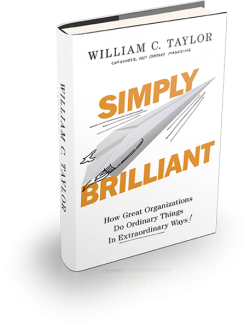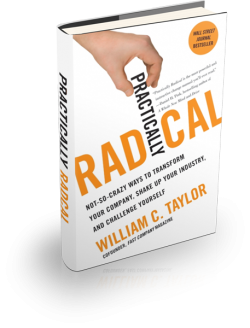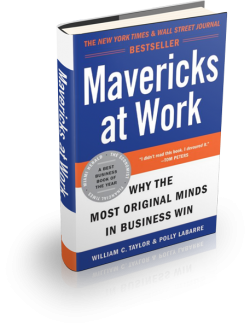Adam Lashinsky’s new book Inside Apple offers lots of intriguing material about Steve Jobs and the strategic choices, design principles, and business tactics that created the most valuable company on earth. But for all of Lashinsky’s behind-the-scenes material about Apple’s legendary leader, it was a public story about Apple’s new leader, CEO Tim Cook, that most captured my attention—and offered a powerful insight for leaders everywhere looking to create value in their organizations.
The story goes back to January 21, 2009, during Cook’s inaugural conference call with investors after Jobs announced his medical leave of absence. The very first question, Lashinsky reports, was from an analyst who wanted to know whether Cook might replace Jobs permanently and how the company would be different if he did. Cook did not respond with a detailed review of the products Apple made or the retail environments in which it sold them. Instead, he offered an unscripted statement of what he and everyone at Apple believed—“as if reciting a creed he had learned as a child” in Sunday School.
“We believe that we are on the face of the earth to make great products, and that’s not changing…” Cook declared.
“We believe in the simple not the complex…We believe in saying no to thousands of products, so that we can really focus on the few that are truly important and meaningful to us,” he added.
“We believe in deep collaboration and cross-pollination of our groups, which allow us to innovate in ways other cannot…And I think that regardless of who is in what job those values are so embedded in this company that Apple will do extremely well,” he concluded.
It’s not what you sell, it’s what you believe. If there is one principle that I believe explains why some organizations—Apple, Southwest Airlines, USAA, Cirque du Soleil, the Marine Corps, Pixar—consistently and dramatically outperform their rivals, it is that every person in the organization, regardless of job title or function, understands what makes the organization tick and why what the organization does matters.
Over at my Harvard Business Review blog, I explore the three questions that every great company has to answer: What do you promise that nobody else in your industry can promise? What do you deliver that nobody else can deliver? What do you believe that only you believe?


